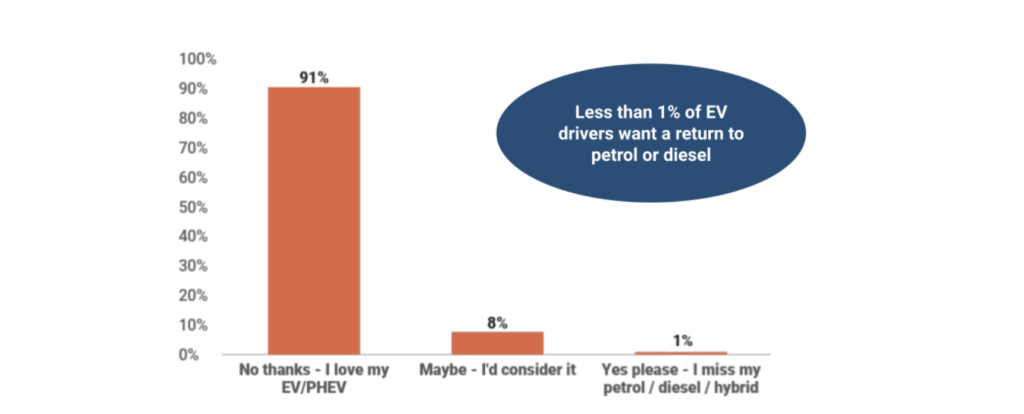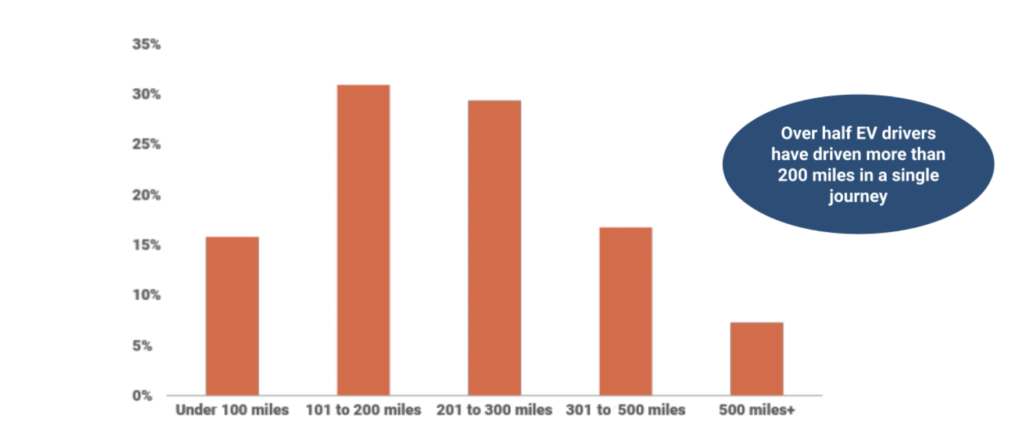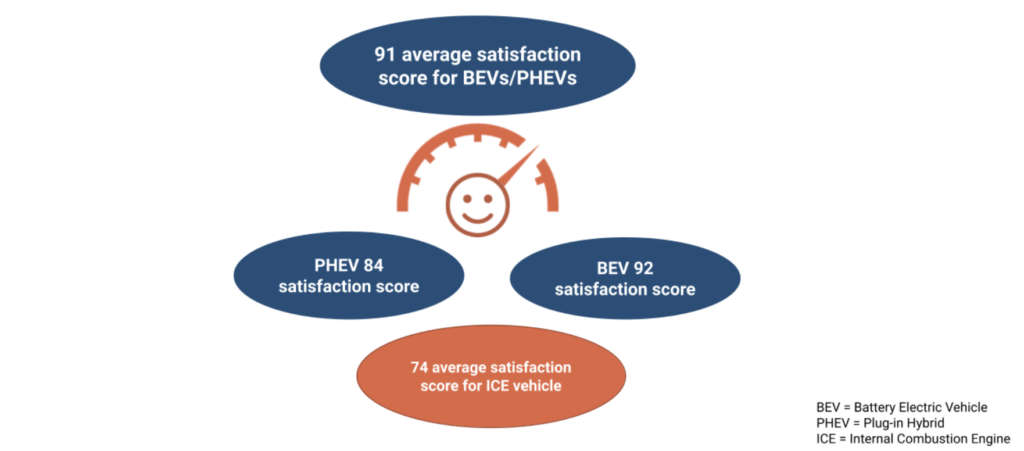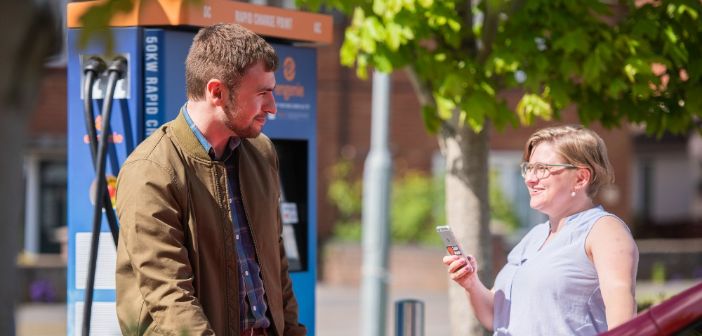A new poll has found not only is there high satisfaction among EV drivers, but there is also increasing confidence in driving long distances.
EV charging app Zap-Map’s latest survey has revealed there is a continuing shift in consumer attitudes towards EVs. The report said that those who switch to electric in 2022 won’t regret it, with more than 90% of respondents sticking with EVs and would not want to replace it with a petrol or diesel car.

For the first time this year, drivers were also asked about the furthest distance they have travelled in an EV in a single journey.
The majority of the respondents, 53%, said they have driven more than 200 miles in an EV in a single trip. This figure shows that drivers are habitually using their EVs on longer trips. Zap Map added this should put to bed concerns over the range of EVs, at least for the average driver. It quoted Department for Transport data which showed that the average car journey in the UK was just 8.4 miles in 2019.
Furthermore, almost a quarter of respondents, 24%, said they have driven more than 300 miles in one trip – with over 7% doing the long haul and driving more than 500 miles in a single journey. For around 31%, between 101 and 200 miles was their longest trip in an EV, while for 15% it was less than 100 miles.

Many of the respondents to the survey were indeed first-time EV drivers. More than 48% of respondents said that their current vehicle was their first EV, with 28% making the purchase in 2020.
Overall driver satisfaction was notably higher for both battery-electric and plug-in hybrid vehicles, with EV drivers reporting a satisfaction score of 91 out of 100 (battery-electric 92, plug-in hybrid 84), compared with only 74 for petrol or diesel vehicle ownership.

Transport Minister, Trudy Harrison, said: “These survey results show that drivers are becoming increasingly confident in making the switch to electric vehicles and I hope this data encourages others to consider going electric as we work towards the UK’s ambitious net-zero targets.
“We’ve committed £2.5bn to accelerate the rollout of zero emission vehicles and charging infrastructure across the country, ensuring the transition is as simple as possible for motorists, as we take steps towards a greener transport future.”





